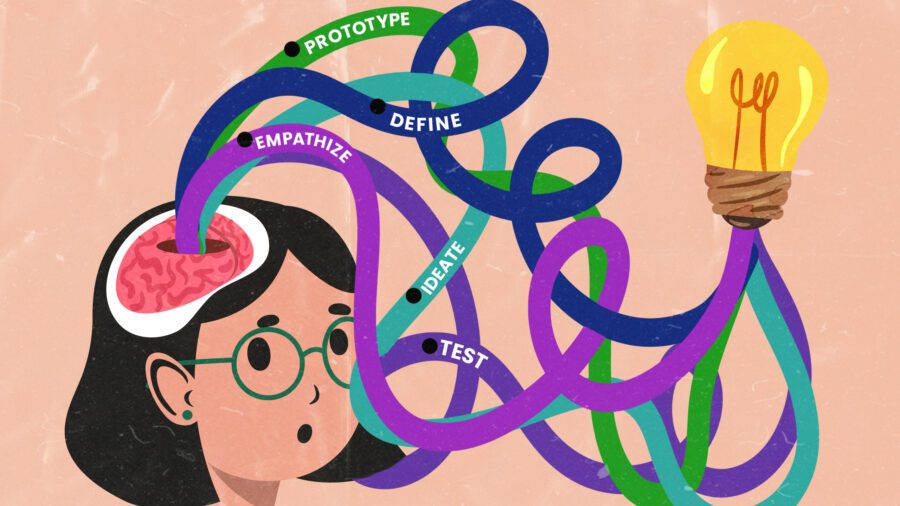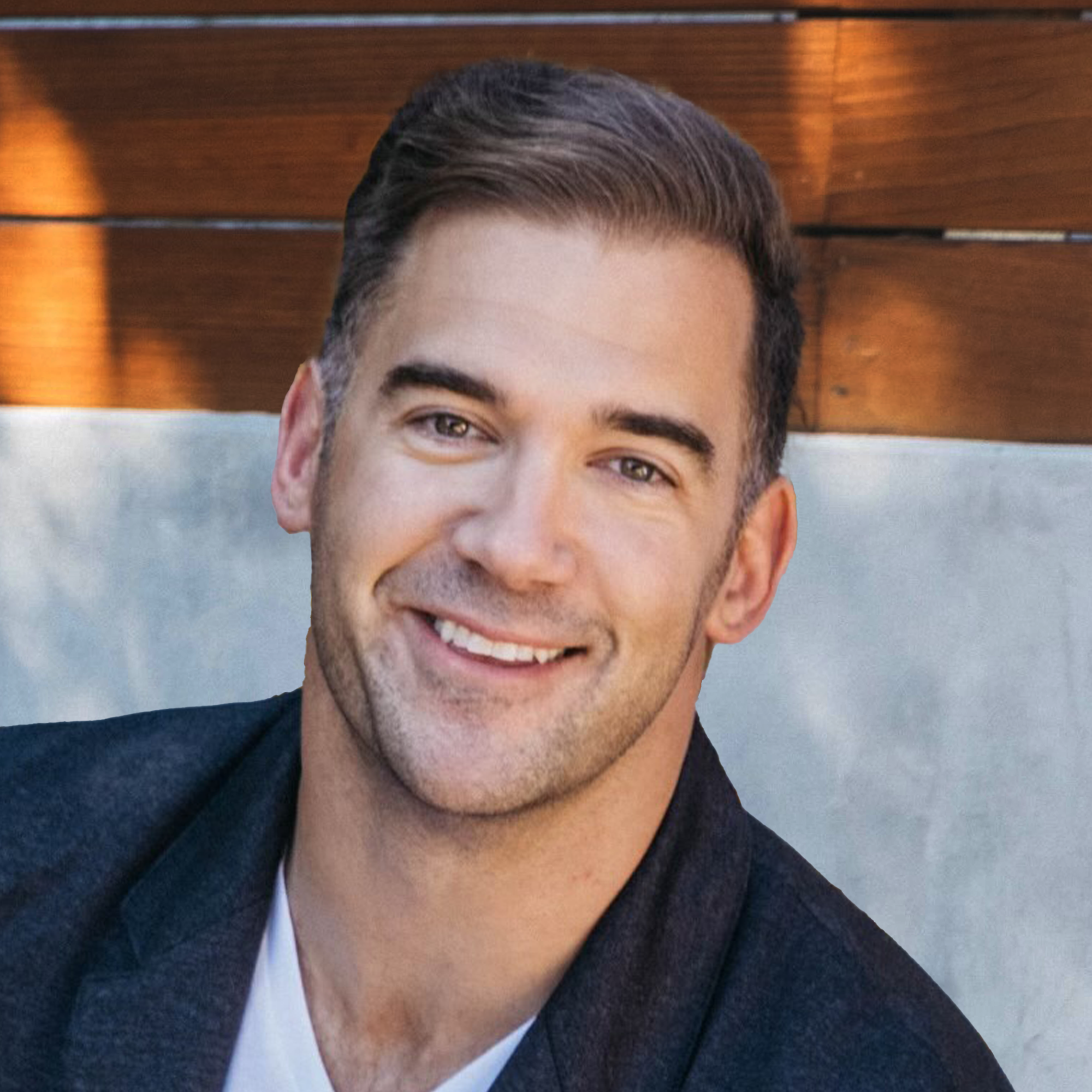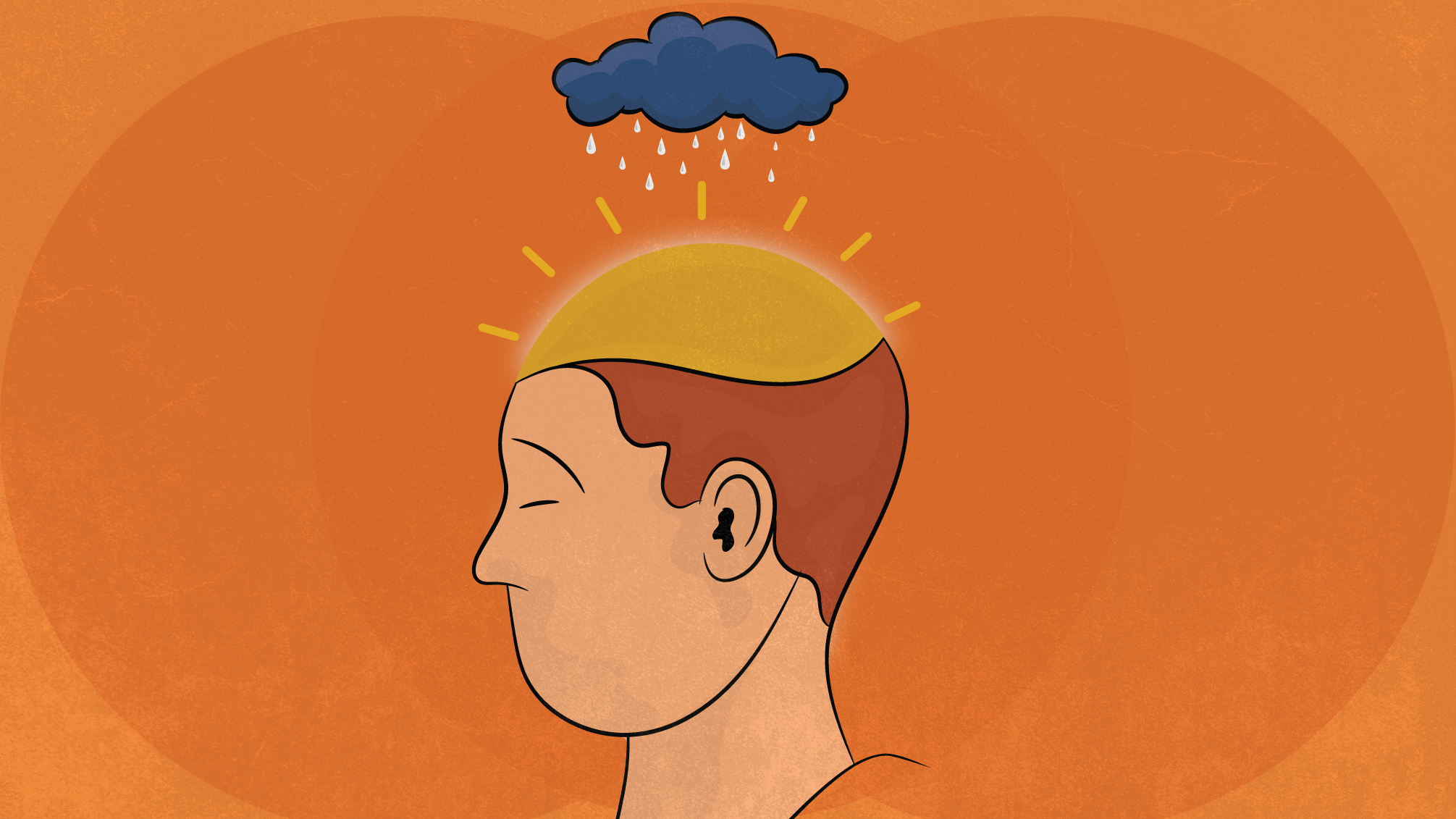
The Enemy of Greatness (FREE Sample Chapter from The Greatness Mindset)
Take a moment to imagine what your life would look like if you bypassed self-doubt for self-acceptance…if you bypassed self-sabotage for self-love.
My name is Lewis Howes, and I’m the founder of Greatness.com and Greatness Media. And when I launched Greatness.com, I wanted to create a space for people from all walks of life to chase after greatness together.
That’s why I’m so excited to share an exciting announcement with you all: I have a brand new book called The Greatness Mindset that I believe will have a tremendous impact and help people reach their full human potential. The book is rooted in the same principles behind Greatness.com: that we’re ALL capable of living more abundant, fulfilling lives.
The Greatness Mindset has been ten years in the making, and it’s truly the book I wish I had when I first began my journey of healing, radical self-acceptance, and stepping into the mission I have for my life. And I know it can do the same for you!
I’ve included a sample chapter of the book below that dives into the “Enemy of Greatness” and how you can make sure to overcome it through every stage of your journey. You can order the full book HERE.
Chapter 3: Missing Your Meaningful Mission
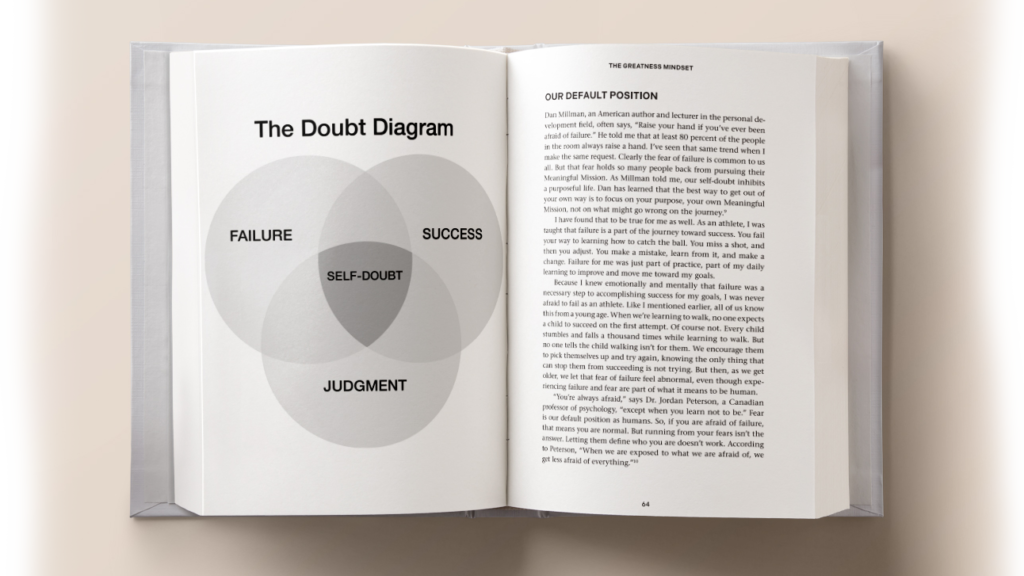
For years he had devoted his time, effort, and energy to one dream—pursuing greatness on the gridiron and reaching the NFL. He had the raw materials to make it happen. He worked out with a fervor, and by the time he was offered an athletic scholarship in college, he was six feet, five inches tall and weighed 290 pounds.
But talent and desire are not always enough.
He played all four years with modest success, playing along- side future NFL Hall of Famers. But when he reached his senior season, he injured his shoulder and had a dismal year. When the NFL draft came, he didn’t get picked. But his football dream was still alive, so he accepted a $250-a-week contract with a Canadian Football League team. (Coincidentally, this is the exact amount of money I made while playing in the Arena Football League while chasing my dream to make it to the NFL.) He showed up every day with focus, passion, and determination to do his very best, but the team already had a stacked defensive bench.
The coach called him one day asking him to turn in his playbook: “I respect your hard work and determination, but unfortunately this isn’t your year. I’m sorry, but we’re going to have to cut you.” It seemed like his football dreams had died.
He bummed a ride to the airport and anxiously hopped on the long flight back home to South Florida. When he landed in Miami, he did the only thing he knew to do. He called his parents, who lived in Tampa, for a ride and place to stay. On the long ride through the Everglades in his dad’s little red pickup truck, he wondered about his next move. Here he was, a 24-year-old with dreams of being a millionaire professional athlete, and he was moving back in with his parents. As he pondered his purpose, he pulled out his wallet to see how much money he had left: a $5 bill, a single, and a handful of change.
What made it especially painful was that his life had not been easy. He had bounced around from place to place as a kid, living in over 13 different states. As a teen, he had lived with his mom in Hawaii while his parents were separated, and they had been evicted, living out of their car. He remembered well the nights when he watched her cry, “What are we going to do now?”
To help his mom out, he started stealing from tourists who came to Hawaii to help pay the bills. As a result, he had landed in jail eight times over the years. He had thought that by going to college and then pursuing his dream of greatness in the NFL that things had finally changed. Now here he was, looking at the mea- sly seven bucks, hearing his mom’s question echoing in his head: What am I going to do now?
He spent the next couple of weeks on the couch alternat- ing between watching the O. J. Simpson trial on television and “cleaning up every scuff and scratch around the apartment with a bottle of 409 cleaner.” Then after about two weeks, he had a revelation:
I realized there was something else for me. The world was going to hear from me. I didn’t know how. I didn’t know when. But I did know my life was more than just sitting around in this little apartment, cleaning up scuff marks and being depressed.
He knew he had a Meaningful Mission. He just needed to find it. And he wouldn’t find it sitting on the couch. He decided to put his size to work as a professional wrestler. So he headed to the gym and started working out like a man on a mission.
His dad had been a famous wrestler, so he asked for train- ing help and applied all of the perseverance and tenacity he had once devoted to football to his new mission of becoming great and making a significant impact in some way. And although success didn’t come all at once, it paid off. He started out wrestling under the name Rocky Maivia, a play on his father’s and grandfather’s names, but was booed soundly by the crowd. He then became the Blue Chipper, with much the same negative reaction. But he was learning both the athletic skills and the show business expertise that eventually led to his developing a new, record-breaking wrestling persona.
Dressed in all black, he became the villain everyone loved to hate—and the crowds loved him. For the next seven years, he dominated the wrestling world, winning the world title every single year. He had finally succeeded in his mission. But he wasn’t done.
You may not have followed wrestling during those seven years, but you’ve probably heard of this determined young man, because as Dwayne “The Rock” Johnson excelled at the show business side of the wrestling world, his mission evolved as he aimed for something bigger—Hollywood.
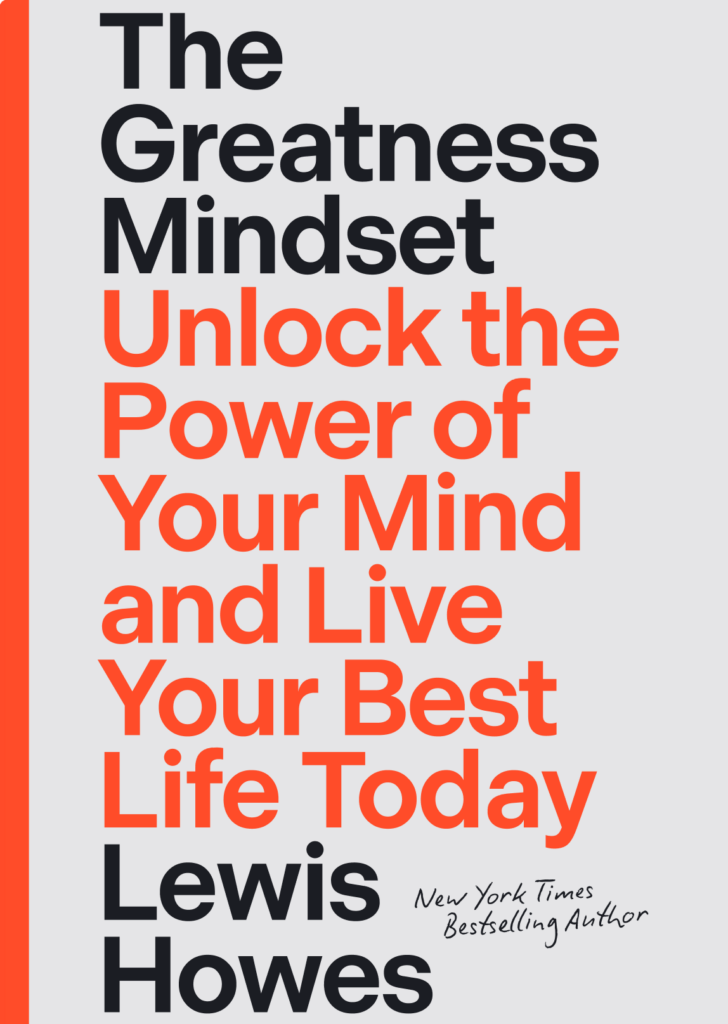
The Greatness Mindset
Learn the secrets of some of the greatest minds in the world. Unlock the power of your mind and live your best life today.
Learn MoreTHE ESSENCE OF THE ENEMY
When Dwayne Johnson wasn’t clear on his Meaningful Mission in life, he struggled to make any progress. But once he confronted that Enemy of Greatness, he set events in motion that propelled him to greatness—and he’s not done yet.
Why do I call the lack of a Meaningful Mission the Enemy of Greatness? It’s simple. If you don’t have a clear path forward, you’ll never move forward. Why would you? Most people would think it safer to stay put when confronted by the unknown. If you are
more adventurous and ambitious, you may try to move, but you feel scattered and confused by chasing after every shiny object that comes your way. You get really busy but feel like, at the end of the day, you’re right back where you started. And that can feel even more frus- trating. After all that effort, you got nowhere. That’s when some people begin to lose hope and turn to coping mechanisms to dull the pain. Ugh. No one wants that.
And yet that’s how it can feel every day when you have not confronted this Enemy of Greatness. It lurks in the background of life, shadowy and unseen, unidentified but unbelievably power- ful, shaping stories in ways people never fully realize until life has passed them by. “Your purpose needs to be the most important mission of your life. If you’re not walking in your purpose, you’re just working and living to die,” said Nicole Lynn, the first female agent to represent a top NFL agency, when she chatted with me on my podcast. “You’ve got to figure out what that purpose and calling is.”
Sri Sri Ravi Shankar, often referred to as Gurudev, is an Indian yoga guru, humanitarian, spiritual leader, and an ambassador of peace. He is the founder of the Art of Living Foundation, which has helped millions of people over the last 40 years find inner peace and fulfillment in their lives. When I asked him what hap- pens if human beings don’t find a Meaningful Mission, he replied:
If you don’t have a clear path forward, you’ll never move forward.
For one thing, they live a routine life, like boredom, where the intellect goes to sleep. Then you don’t need to look for a purpose in life, because you just exist. But it’s when you are more mature that you start thinking, What’s the purpose of life? That’s a sign of a mature intellect. And once we have the spirit of inquiry about life itself, then our spiritual journey begins.
Truth be told, not having a clear mission fuels the fears that are core to all of us: What if we’re really not good enough to achieve? What if we don’t have what it takes to succeed? What if the problem is us? When you don’t know where you are going or why, you’re naturally going to doubt yourself more. If you do have clarity, however, you can learn how to convert those fears into confidence and overcome that nagging sense of self-doubt.
Having a Meaningful Mission enables you to end the iner- tia and the temptation to wander aimlessly and label it “success.” Believe me, I know what it feels like to drift—I still can’t get all those late-night “get rich quick” infomercials out of my head from when I was living on my sister’s couch. And I know what it’s like to achieve success, but to feel that it’s not really what you want to do or it doesn’t make you happy.
For me, everything changed when I found the beginnings of my own Meaningful Mission while stuck in L.A. traffic.
BACK TO SCHOOL
On one hot summer day, I was on the 405 highway in traffic. The AC barely worked, and I felt it even more on that sweltering August day. I had moved less than two miles in two hours, so I had plenty of time to play the drums with my fingers on the steering wheel and think. The car itself was a classic that seemed stuck in time: a 1997 Cadillac Eldorado two-door with leather seats, a radio that didn’t work, and a CD player. I had bought it for four grand from a mentor of mine. It felt like my grandpa’s car, but it got me where I was going.
I had just moved to Los Angeles a few months before and wasn’t feeling at home yet. I had sold my previous business to my business partner for seven figures. It hadn’t all worked out beautifully, but it was done. I was free to move in a new direction, but what exactly that would be, I had no idea.
I kept moving forward, believing something would materialize, but I was frustrated with so much of my life. I mean, here I was, young and healthy. I had made what most people would think was a good deal of money, but I felt empty. My relationships felt off too. As a result of the lack of purpose, I felt my physical health beginning to slip and my emotional health along with it. I felt like my life was breaking down.
So as I sat in the car that day with the radio going in and out in the background, I asked myself: Why am I not feeling good inside? Why am I feeling unfulfilled? Why do I not feel satisfied when I’ve been so driven for the last several years? I’d been goal-oriented and gotten things done, but I don’t feel fulfilled inside. Why?
I knew I loved interviewing people, asking questions, and learning, but I had no idea how to make a living doing that. Then it hit me: I’m stuck, and I’m literally surrounded by all these other people who are stuck. They’re obviously frustrated based on their honking and yelling—and not just about the traffic. Their frustra- tion is deeper, like mine, with life in general. Then I realized there must be millions, if not billions of people, just like them and just like me. What if I could get in front of them and help them and help myself in the process while making a living doing it?
The wheels started turning, unfortunately not on the high- way, but in my mind. At the time, I had heard about podcasts, but they really weren’t anywhere near as popular as they are today. You had to explain what a podcast was to most people when it came up in conversations, and it seldom came up. The handful of people I knew who were into podcasting weren’t really making money at it yet. But I began to wonder if I could do it. After all, I was already interviewing all kinds of people, but just for my own benefit and learning. What if I could do what I love, record these interviews, and share them with the world to help others? Hmm.
So while still sitting in dead-stopped traffic, I started dial- ing a few friends who were into podcasting. Both Derek Halpern and Pat Flynn encouraged me to dive in, saying, “It’s one of my favorite things,” and “It’s the best tool for engaging an audience.” Since I hadn’t moved more than 10 feet, I called my friend James Wedmore to get his input too. He echoed the positive feedback, and we started brainstorming a name for the show.
Out of that place of keen awareness of my own brokenness in life, I told James I wished school had taught me the things I really needed to know. Instead, I had always felt slow and stupid and just not enough in school. But I wish there had been a school where I could have felt empowered—a school that taught me how to overcome fear, failure, and insecurities; how to manage my finances; how to enjoy fulfilling relationships; how to maintain my emotional health; or even how to eat nutritiously and be physically healthy.
All those things felt like they were breaking down in my life at that time, and I just wished there was a school about these meaningful things, not just about accomplishing goals and being suc- cessful. I just want to live a great life.
If only there were a . . . school . . . that taught about how to do this . . . a . . . School of Greatness.
Bingo!
The name of the show came to me right then and there. Just as I was stuck, in traffic and in life, the idea began for starting a podcast that could, quite literally, help not only me to get unstuck, but also all the people around me—and millions more—to live a more meaningful and fulfilling life.
MEANING AND MISSION
Someone I have interviewed on the show many times and shared a number of powerful interactions with is Tony Robbins, and he tells me most people struggle to have a big vision for the future because they focus on how it can be done instead of why they want to do it. Once you are clear on your why, the how takes care of itself.
None of us can see how a mission can be accomplished at the start because our only perspective is what we have at that moment. That perspective is shaped by what we’ve experienced in the past, not by what we might experience in the future. But when we start moving forward, our perspective begins to change. Opportunities we never imagined were suddenly open to us. Connections we didn’t realize were possible open doors we didn’t even know existed. Resources we assumed were unavailable suddenly become accessible because we learn secrets we didn’t know were once hid- den from us. And it all starts by having a Meaningful Mission.
Now, there are two fundamental questions you might already be asking: What makes a mission meaningful? And then, even more basic, why are you calling it a mission?
For a mission to be meaningful, it must first be personal to you. It has to resonate with you individu- ally. It can’t be a mission someone else wants you to tackle. It can’t be imposed on you against your will or something you fall into by accident. It must be an intentional embracing of a direction that is significant to you. And that is key, because it means no one else can choose your Meaningful Mission for you.
The first step to discovering your Meaningful Mission is to be honest with yourself about yourself. If I hadn’t been in a place of honesty with myself about my life situation when I was sitting in traffic that day, I never would have reached out for help. I never would have looked for something more. I might still be stuck in life’s traffic, waiting for someone to save me from myself.
Once I saw myself clearly, I began to ask the key question: What do I really want? And that leads me to why I call it a mission. A mission taps into something more significant than, say, an outing or a trip. It is not a vacation. It calls upon the deeper parts of our souls and moves us to attempt something greater than ourselves.
Like a heroic quest, a mission has a singular focus or purpose, as well as a call that compels you to push through resistance to complete it. That’s why we don’t use the word mission to describe a visit to the grocery store, the dentist, or a theme park. A mission by definition is greater. It takes time. It requires determination and grit to achieve. It often remakes the people who are part of it into something better. And it always implies that the destination is grander or greater than any you have previously achieved. After all, if it were something you had done before and could easily do again, it wouldn’t be much of a mission.
As I began to get honest with myself about where I was and what I wanted out of life, my Meaningful Mission began to take shape. Now my mission is clear:
To serve 100 million lives weekly by helping them improve the quality of their lives and overcome the things that hold them back.
Giving my mission a concrete number allows me to quantify the actions and evaluate progress to reach that goal. And once I reach that goal, I’ll reevaluate the mission and my next season of life.
And that is key. My mission is not to be a podcaster, an author, a TV host, etc. The podcast and these other platforms are the mechanisms to serve the mission.
Having clarity about your Meaningful Mission right now doesn’t mean it will always remain the same. In fact, in order for any mission to remain meaningful to you, it must evolve over time as you grow and change. For many seasons, I loved play- ing baseball. Until I didn’t. I found the LinkedIn business to be fulfilling. Until I didn’t. And that’s okay. The mechanism through which I serve others right now is through The School of Greatness show, using multiple platforms to package and distribute the show and similar media efforts. But someday the details of that mis- sion might change as technology shifts or other opportunities arise. I don’t know what the future will look like, but I know that my Meaningful Mission will evolve to continually help people improve the quality of their lives and overcome the things that hold them back.
Katy Milkman, award-winning behavioral scientist and professor at the Wharton School of the University of Pennsylvania, describes the essence of greatness as being clear on your purpose or mission so that it serves as your North Star. She told me that when someone has that clear North Star and has built their life to support and “lean toward it” in all aspects, she feels like she is in the presence of greatness. That’s why when you get clear on your mission, you can start structuring everything else around it and live a more intentional life, no mat- ter the mechanism you choose.
In other words, the mechanism may change. But no matter how the mechanism evolves, your passion and strengths will always drive you to make a significant impact in the world from your sweet spot.
It’s important to consider what mechanism resonates with you in the season of life you are in. For example, you may have passion for serving people, but that doesn’t necessarily mean you should be an Uber driver. Or maybe that is the thing that really energizes you, which is fantastic if you know that! There are literally a million different mechanisms you could choose that would allow you to do a lot of good for a lot of people. The key is setting yourself up for the mechanism of service that works for you.
Let’s be honest about one thing: money can cloud your perspective here. As Zig Ziglar put it, “Money isn’t the most important thing in life, but it’s reasonably close to oxygen on the ‘gotta have it’ scale.” I’ve had no money at times, some money at times, and then a lot more money, and, all things being equal, I’d rather have it than not. But it doesn’t mean there aren’t challenges and pressures to overcome with having more of it.
Money buys a lot of things and brings you other choices and options and freedoms, but it doesn’t buy fulfillment. Try to separate yourself from the money when assessing your Meaningful Mission. Ask yourself: If money were no longer an issue, what would I do? What would light me up every day? Be careful that the choices that drive your mission aren’t fueled solely by wanting more money, because it won’t last.
The bottom line is that your Meaningful Mission is not something you can choose once and be done. It’s part of a constant assessment on your journey through life. I started with an audio-only podcast. Now, thanks to my awesome team, we have one of the most popular YouTube channels with video and ever-expanding social media. We’re branching into differ- ent languages and exploring all sorts of other mechanisms to achieve the mission.
Grasp your mission securely but hold the mechanism loosely. Don’t let the how stop you from focusing on and pursuing your why.
FIND YOUR SWEET SPOT
Is what you are doing right now in life the best use of your time and talents? Knowing your sweet spot helps answer the question. To discover your sweet spot, consider three factors:
Passion
Your Meaningful Mission starts where your heart is. The Rock loved football and used his size to be physically active, and then he grew to love the show business side of wrestling. I loved asking questions, interviewing, and learning.
Ask yourself questions like these, and truly listen to what your heart tells you:
- What lights you up?
- What makes you want to jump out of bed?
- If money were no object, what would you love to do?
- What would you do all day, every day, even if you didn’t get paid to do it?
- What causes and experiences excite you?
Power
Passion alone isn’t enough. You may really love doing something but lack the strengths to excel at it. When that happens, you’ve probably discovered a hobby that could have an important place in your life but isn’t your sweet spot. For me, I love salsa dancing, and it’s more than a passion—it’s an expression of my life. I used to travel the world seeking out the best salsa dance clubs in New York City, Miami, Los Angeles, San Francisco, Vancouver, Mexico City, Buenos Aires, London, Paris, Bangkok, Sydney, and beyond. Every wedding I go to I ask them to play salsa, and anytime I hear it at a restaurant, I get up and start dancing. I’m kind of weird about it, but I love it! I could do something to make money with it and make it part of my mission, but it doesn’t call to me enough inside to make this my life’s work (at least not this season). So I keep it a passion for now.
Your unique strengths are components of your natural hard- wiring that give you an advantage in some situations. No one is naturally wired to do everything well. That’s why we all need each other. Your strengths give you power in those situations that call for them. You can then develop the skill sets needed to make the most of that power. For example, I love asking people questions and learning from them; that is part of my natural strengths. But I have also become a student of the interview process to develop that skill set in support of my strengths. Together, these strengths and skill sets position me to make a power-driven contribution in my sweet spot.
Problem
Many people spend their lives running from problems. But pursuing a Meaningful Mission from your sweet spot means you actively seek out a problem to solve. Rather than running from the challenge and letting it define you, you courageously run toward it—and redefine the world as you do.
In short, you can become the hero of your own story. Donald Miller, author of Hero on a Mission, described it to me in this way: Every good story requires a problem and a hero willing to solve it. Otherwise, there is no story. You find your Meaningful Mission when you find a problem that needs to be solved in the world.
For example, Kelly Simpson, a member of the Greatness Academy community, was a veteran real estate agent who saw a serious problem: an epidemic of violent attacks on real estate agents. Very little was being done to actively equip these agents to be proactive and defend themselves, so she formed the National Safety Council of Real Estate, set out to write a practical guide for agent safety (Not Today Predator), and developed training and materials to keep agents safe. She saw a problem that aligned with her passions and strengths and made it part of her own Meaningful Mission.
Whatever the problem is, finding a solution must resonate with you. When I was at an event with Gurudev, a young woman asked him what can be done to end global warming. His response went right to the heart of the issue: “You are clearly passionate about creating change, so I trust you will take action to make it happen. Passion leads to action. If you’re not passionate about it, you simply won’t be able to sustain your activity.”
This focus on solving a problem is consistent with what fuels our sense of fulfillment and happiness. Dr. Laurie Santos, Yale professor and host of the podcast The Happiness Lab, told me, “There is a mistaken notion that happiness is all about self-care. But what the science suggests is that happy people are really others-oriented. They’re reaching out, making social connections, and worrying about how they can help other people and other people’s welfare. That’s what seems to lead to a happy life.”
In the same way, Gurudev describes three levels of intelligence:
- Unintelligent people look for instant pleasure for themselves.
- Mid-level intelligent people shift to doing things out of a sense of duty and focus on following the rules.
- The highest level of intelligence belongs to those who desire to spread joy by serving others.
Beyond themselves and not merely out of a sense of duty, highly intelligent people, as defined here, care about helping spouses, families, and their communities solve problems. The beauty of this intelligence or awareness is that it is not something anyone is born with. It can be chosen, pursued, and cultivated by everyone.
Former CIA director John Brennan once told me he defines greatness as “accomplishing something that is beneficial to more than yourself and making a contribution to humankind.” He added that it doesn’t require a large public profile but a willingness to rise to the occasion and meet a need. To be meaningful, he said, it needs to be something that affects more than yourself.
To be clear, we don’t always get total clarity on our sweet spot right away. Sometimes we get more clarity as we engage in the process of putting our passions and strengths to work. You might need 5 or 10 years to really figure it out, and even then, you may need a game plan for developing needed skills.
Robert Greene, the New York Times best-selling author of books such as The 48 Laws of Power, The Art of Seduction, The 33 Strategies of War, and The 50th Law, told me he didn’t always know his own sweet spot. He tried being a newspaper writer and was good at it, but he always felt friction. He tried screenwriting for television, then for movies. Those were also okay, but they still didn’t feel quite like his sweet spot. After a decade of jumping from thing to thing, he decided to pursue his own unique passion for a particu- lar topic with his growing skill sets, and he published a book few people believed would be popular: The 48 Laws of Power. At the time of this writing, the book has over 35,000 reviews on Amazon alone, and his impact on the world is still growing.
It’s okay if finding your sweet spot and Meaningful Mission takes time. That’s normal. Just keep moving forward and never settle until you do.
ENGAGING GREATNESS
Exercise 1: The Perfect Day Itinerary
The Perfect Day Itinerary (PDI) may be one of the most powerful exercises you ever do for yourself, so make sure you have plenty of time dedicated to finishing this exercise. I’ve coached many unfocused entrepreneurs through this exercise, and most of them have told me it changed their lives. I’m never surprised to hear that because I believe this exercise set me up to create the beautiful life I’m living today.
THE GREATNESS MINDSET STEP 1—CRAFT YOUR PERFECT DAY
In this exercise, your job is to map out what your perfect day looks like along the path to achieving your vision. We will start at the macro level by asking ourselves a series of questions.
- How do you want every day to look?
- How do you want to feel every single day? What are you creating daily?
- Who are you with?
- What places are you exposing yourself to? What passions are you fulfilling?
Take out a blank piece of paper or open a new document on your computer and fill the first half of the page with the answers, in broad terms, to these questions. Below are my results from the very first time I did this exercise years ago:
MY PERFECT DAY
On my perfect day, I wake up next to the woman of my dreams. I’m preparing to compete in the 2016 Olympics with U.S.A. Team Handball, so I head to an intense training session with my coach to increase my physical strength and athleticism. Then I’m working on my TV show on a major network and supporting my company team with my projects that inspire entrepreneurs to follow their pas- sions and make a living around what they love.
Of course, not every day you live will be exactly the same. Each day will look a little different depending on what happened the day before. Thank goodness for variety; otherwise, life would get boring and monotonous.
STEP 2—WRITE THE ITINERARY
Next, write out a detailed itinerary for the next perfect day on the bottom half of your page. This itinerary should include your obligations and your desires, and the timing for each. Every suc- cessful sports season, I had included detailed daily itineraries that, I believe, set us up to win. The schedule listed out every step we needed to take to reach our end goal. Professional sports teams do this as well to help them collectively achieve their vision. That’s the point of this exercise—to help you achieve your vision.
Here is a version of my daily itinerary from when I wrote my first book:
TOMORROW’S PERFECT DAY
- 7:30 a.m. Wake up, meditate, and enjoy the views from my balcony. 8:00 a.m. Healthy breakfast with green juice or a smoothie.
- 9:00 a.m. CrossFit/kickboxing or private skills-training session. 10:45 a.m. Check in with my team about projects of the day.
- 11:00 a.m. Complete the top three tasks that were on my list before bed. 12:00 p.m. Healthy lunch at home or lunch meeting with someone who inspires me.
- 1:30 p.m. Back to the top three on my to-do list, recording interviews, doing videos, or working with the team.
- 3:00 p.m. Physical therapy to increase flexibility (two days a week).
- 5:00 p.m. Pickup basketball, hiking with friends, swimming in the ocean. 7:30 p.m. Healthy dinner at home or out with friends.
- 9:00 p.m. Read, watch a movie, go to events with influencers on the town.
- 11:00 p.m. Make a list of what I’m most grateful for today, create a “completed list” of what I did today. Write the top three things I want to create tomorrow.
- 11:30 p.m. Meditate, sleep, dream, recover the body.
STEP 3—SET A MICRO GOAL
Choose one or two things on your itinerary that you will do tomorrow. To start working toward your perfect day, you don’t need to overhaul your existing routine. Instead, you need to find small, achievable wins that will help you improve your life and feel hopeful.
Pick those one or two micro goals and put them in your calen- dar or set an alarm for them. Commit to doing them. Tomorrow, you’ll be one step closer to your perfect day. If you let it, the PDI can be a powerful exercise that will set up your year (and many years to come) to include the best days of your business and life. It will also help validate your vision and vice versa. If your vision doesn’t fit in with your perfect day at either the macro or micro level, consider changing your vision or be more open, honest, and creative about what it will take at a daily level to work toward achieving your Meaningful Mission.
Exercise 2: Write Your Obituary
I recently spent some time with Donald Miller on my show. He had just written Hero on a Mission and challenged us to write our own eulogies. He believes that understanding our narratives and objectives helps us to keep growing. I agree. In this exercise, we will write our own eulogies and craft our growth path. As Donald Miller says, a “hero knows what they want.”13 So let’s figure out what we want.
STEP 1—CRAFT YOUR NARRATIVE
Get out a sheet of paper and prepare to get honest with yourself. Remember, you’re the only one reading this. You can get as aspi- rational and hopeful as you want. I want you to set aside at least 30 minutes to think about the questions and write your answers.
- How long do you want to live?
- What Meaningful Mission did you accomplish before you died?
- When asked, what do people say is your legacy or your most outstanding achievement?
- What do your loved ones say at your funeral?
STEP 2—PUT IT TOGETHER
Now it’s time to put our goals together to craft a eulogy. If you don’t feel like you are a natural writer, this may feel overwhelm- ing, but stick with it. Follow the order of the previous questions for the structure of the eulogy.
Here’s a sample to show you what yours might look like:
Lisa Anderson, age 90, was known for the way she sup- ported and advocated for art education in local communi- ties across metro Atlanta. She met with local community leaders, churches, community developers, and schools to help them figure out how to fund and launch art programs for children, teens, and young adults. “Art,” she said, “has the power to change a life. By teaching young people skills to express pain, vulnerability, confusion, and beauty, com- munities could be changed for the better.”
Lisa believed that art, whether we were observing it or creating it, had the power to change policy, social discus- sions, and culture. She spent her life making sure people could embrace the power of art, regardless of their socio- economic status.
Because of her, young people were changed for the bet- ter. It wasn’t just art she loved. She loved people too. She was fiercely dedicated to helping anyone she met flourish and thrive.
According to her daughters, Lisa’s art, while import- ant, wasn’t her greatest accomplishment. “The way she loved people, showed hospitality, and treated you like you were her oldest and dearest friend are the things we will miss the most about her.”
Her surviving family and friends are creating the Lisa Anderson Art Coalition. The Coalition will help expand the reach of art scholarships and education in communi- ties of poverty across the United States. In lieu of flowers, the family requests donations to the Coalition.
STEP 3—SAY YES
Okay, now that you’ve taken the time to craft your own growth path, it’s time to start enthusiastically saying yes to everything that will get you there. Understanding where we want to go in life helps us say yes to the things that keep us on the path to greatness and say no to those that do not. Let’s start by removing your known barriers.
Chances are, you already know some of the biggest challenges or barriers in the way of your legacy. Is it fear? Anxiety? A job you hate? Lack of training? Refer to the legacy you laid out for yourself. What are the things that are preventing you from achieving those specific goals? Now is the time to take concrete steps to knock those barriers down.
What is the length of time between now and how long do you want to live? If you said 90 years old, how many years do you have left? Fifty? Sixty? Twenty? What milestones do you need to achieve within that timeframe in order to fulfill your self-prophesized legacy?
This week, I want you to do one thing that will lessen your biggest challenge. If you’re going to become a personal trainer but don’t even know what certifications you want, set aside 30 min- utes for research this week. If you want to teach people how to feed their families for less than $100 per month, find and claim a URL for your future website. As I’ve said before, every step counts, even baby steps. The important thing is to start saying yes.
Exercise 3: Find Your Sweet Spot
If you’ve spent any amount of time following me on social media, listening to my show, or watching any of my videos, you know that I think you’ve got what it takes to be great. Yes, you. We might not have met, but I know you have something you do better than anyone else. You have a sweet spot in life. You have a talent or skill where your greatness truly shines. I will walk you through a dis- covery process below to help you identify your sweet spot.
STEP 1—FIND YOUR PASSION
Your sweet spot starts with understanding your passion. Most people naturally know what they are passionate about when they are younger, but it’s so easy to lose sight of it as we get older. Our responsibilities and obligations can turn down the volume of our natural passions, but they are still there. Take a few minutes to reflect on your childhood, teen years, or even your young adult- hood and rediscover what you loved.
- What did you enjoy doing with your free time?
- What dreams did you have of what you might love to do in life?
Take a moment to write these things down, even if they don’t seem viable at the moment. Perhaps you were obsessed with creating cookie recipes when you were younger and putting together cookie baskets for your family when you were younger. Write it down!
Next, list seven things you love to do. They could be anything— as long as you absolutely love to do them!
• What lights you up? Inspires you? Energizes you?
• When do you find yourself losing track of time because you are so absorbed in an activity and can’t wait to get back to it and do it again?
• What would you love to do even if you didn’t get paid to do it?
• Fast-forward to your golden years. What might you wish you had done more of?
Now take a moment to compare your lists.
- What common themes do you see in your answers?
- What words get repeated? What activities keep getting mentioned?
- What threads are woven consistently throughout your story?
Summarize the patterns you see by circling common words or writing a few summary sentences below both lists.
STEP 2—FIND YOUR POWER
Discovering your strengths and skills is next. Like I said earlier, everyone is really good at something. Let’s figure out what it is with some intentional exploration.
Just because you are passionate about doing something doesn’t mean you have the skill set to do it (and that’s okay). Your skills can be natural or learned. Here’s the difference:
Natural strengths are what you are naturally good at based on your personality hardwiring. Learned skills are what you have learned to be good at through life experiences.
I have no doubt that you already know some of your strengths and skills and that you have hidden talents you may not recognize as keys to greatness because they feel so normal to you. I want you to take a moment to think about what you are good at, consider- ing both your natural and learned skills. Write them all down.
STEP 3—BECOME A HERO
Now that we’ve looked at your passions, natural strengths, and learned skills, it’s time to look at the problem you want to help other people solve. Do you want to teach people how to grow veg- etables to feed their families easier? Do you want to teach people how to get out of debt to have the abundant life they desire? Do you want to teach mindfulness so that children can better over- come the effects of trauma?
Perhaps an easier way to look at this is philosophically. What is just wrong in your world, community, or circle of influence? I’m willing to bet that your passions, strengths, learned skills, and mission intersect at many points or one central point. Can you find the overlap?
Take a moment to write down some declarative sentences about your problem-solving mission. Utilize some of the eulogy- writing skills we learned in our earlier exercise.
Here’s what it might look like:
I am passionate about cooking and gardening. For some reason, I’ve always known how to create delicious concoctions in the kitchen, with or without a recipe. In the last several years, I have taught myself how to get better at cooking through YouTube videos, cooking classes, and two cooking vacations to Tuscany. Now I want to take these skills and teach them to single moms, college kids, and low-income families. I believe everyone deserves delicious food and the know-how to create it from affordable ingredients and their own gardens.
REDEFINE YOUR WORLD
The overlap between your passion and your power is your sweet spot. When we pursue our purpose and Meaningful Mission from our sweet spot, we become mission-oriented in our problem solving. We courageously run toward problems and redefine our world. When we pursue greatness, it’s not just ourselves that change. The world changes too.
Join In 200 Million+ On The Journey to Greatness
Lewis Howes
Lewis Howes is a New York Times best-selling author, keynote speaker, industry-leading show host, and founder of Greatness.com. His show The School of Greatness is one of the top podcasts in the world with over 500 million downloads. Howes is a two-sport All-American athlete, former professional football player, and member of the U.S.A. Men’s National Handball Team.
Howes’ latest book, The Greatness Mindset, teaches you how to unlock the power of your mind to reach your full human potential. He was recognized by the White House and President Obama as one of the top 100 entrepreneurs in the country under 30. Lewis has been featured on Ellen, the Today show, The New York Times, People, Forbes, Fast Company, ESPN, Entrepreneur, Sports Illustrated, and Men’s Health, among other major media outlets. Learn more at LewisHowes.com or follow him on social media @lewishowes.

Redefining Poetry: How Instagram Sensation Rupi Kaur Showed That Poetry Is for Everyone
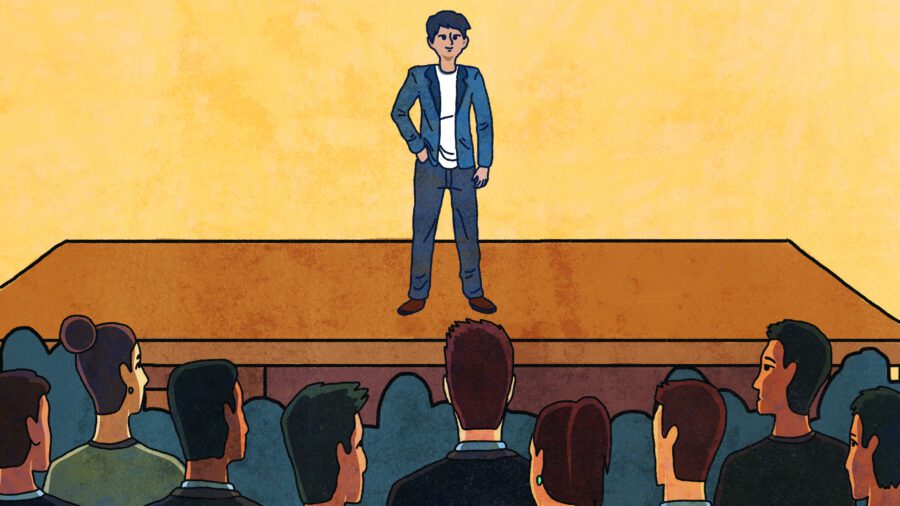
The Young Professional’s Guide to Advocating for Yourself at Work & Setting Healthy Boundaries

Olympian Yusra Mardini’s Incredible Story of Resilience, Rescue, and Refugee Rights
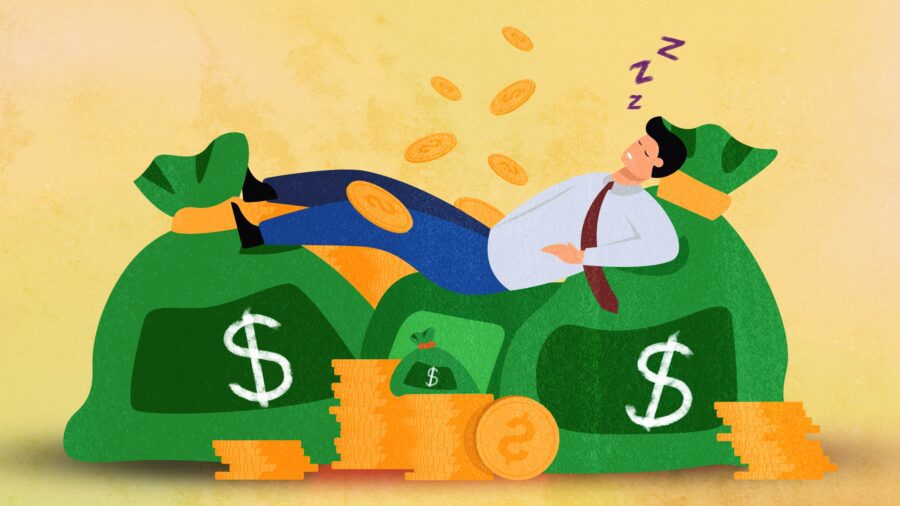
A Beginner’s Guide to Effortlessly Attracting Money and Growth Opportunities
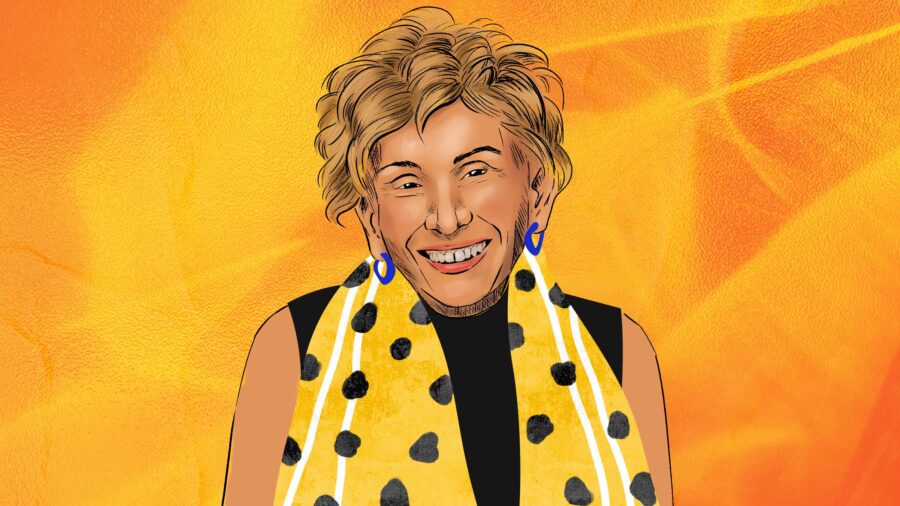
Psychologist Edith Eger’s Inspirational Journey to Find Forgiveness and What It Means for You
